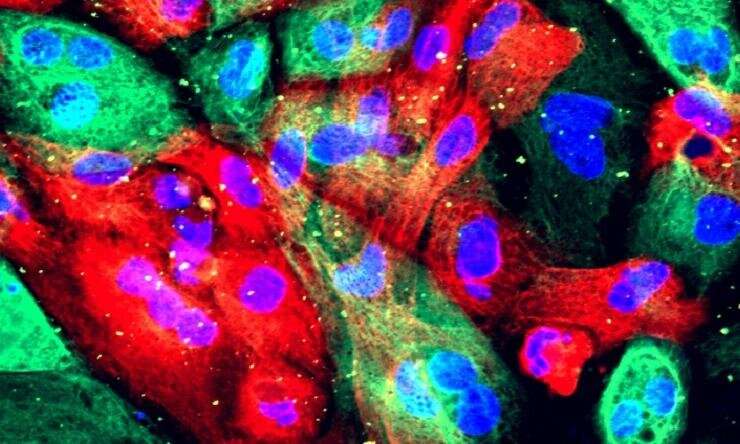
In a study published in Cell Reports Medicine, a group of Chinese scientists revealed the oncometabolite role of progesterone in advanced prostate cancer and strategies to eliminate its oncogenic effect as an aspect of prostate cancer treatment.
Androgen sustains the development of prostate cancer. Although androgen deprivation therapy and abiraterone eliminate the generation of androgen, disease progression is still inevitable.
In this study, a research team led by Li Zhenfei of the CAS Center for Excellence in Molecular Cell Science of the Chinese Academy of Sciences investigated alteration in the metabolomics of abiraterone-resistant patients and found that one metabolite—progesterone—increased significantly. Transient treatment with high doses of progesterone will activate multiple pathways to promote the proliferation of cancer cells. Long-term treatment with progesterone at a low dosage will increase the expression of GATA2, resulting in an irreversible alteration in the transcriptome that promotes disease progression.
They also investigated the metabolic pathway of progesterone. They identified the enzyme 3bHSD1 as a potential therapeutic target for eliminating the generation of progesterone. Specifically, they discovered that biochanin-A, an isoflavone rich in soy and other foods, is a 3bHSD1 inhibitor and suppresses prostate cancer development.
Based on the oncogenic effects of progesterone, plasma progesterone levels were found to be negatively correlated with the duration of abiraterone treatment. Thus, progesterone might be a potential predictive biomarker for abiraterone response and related clinical research is in progress.
In summary, the results of this study demonstrate that biochanin-A inhibits 3bHSD1, thus eliminating the oncogenic effects of progesterone and suppressing the development of prostate cancer.
Source: Read Full Article
